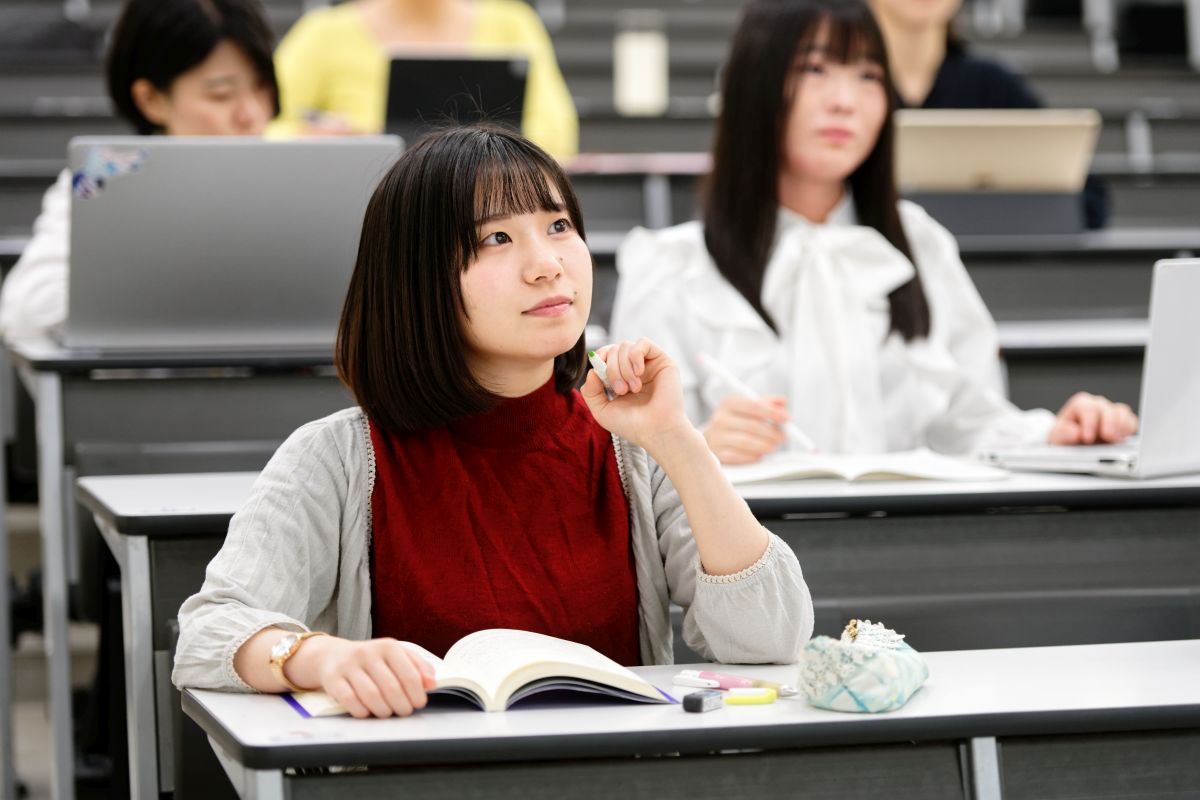Philosophy & Purpose
Philosophy
In the 21st century where we live, human beings are faced with numerous challenges, as unprecedented events occur one after another due to climate change, economic globalization, major demographic shifts, and other factors. Under such circumstances, the United Nations adopted the Sustainable Development Goals (SDGs) in 2015 with the goal of constructing a safe, secure, sustainable society by achieving economic growth in a more sustainable way while resolving many different challenges. At the same time, this modern world has been undergoing rapid digitalization and urbanization, so there are far more opportunities than before for people with different values to meet each other. This requires the creation of a mature society in which different individuals with different ethnicities, sexes, and ages can coexist in harmony and become more involved as members.
The academic world has achieved dramatic growth since the start of the modern age as a result of advances in science and technology. It is an undeniable fact that highly specialized science and technology have contributed significantly to the happiness and peace of human beings, and they are certain to play major roles in the future as well. However, now that we find ourselves in a new situation, as mentioned above, it is necessary to create new values without conforming to traditional stereotypes. This is also true in the academic world.
In recent years, people have worked to create a new future society called Society 5.0. In this society, economic growth is achieved and social issues are resolved at the same time, by building a system that integrates cyber and physical (virtual and real) spaces in a sophisticated manner. The technologies that will play core parts in society are mathematics and data science for analyzing big data, and artificial intelligence (AI) for automating a wide range of services. At the same time, it is also important to allow people to fully demonstrate their innate human abilities that cannot be replaced by machines, while respecting the diverse values that humans have, in order to create an abundant life and future. To do so, it is necessary to learn many things from years of accumulated knowledge in humanities and social sciences. To build Society 5.0, people who are equipped with interdisciplinary perspectives across humanities and sciences and are able to systematically understand human activities as components of society are certain to take on greater roles in the future.
Furthermore, now that people are said to live up to 100 years old, demand is growing for graduate education in Japan, not only for those who have just completed their undergraduate studies, but also for adult and senior students who need recurrent education (return to organized learning).
Yokohama National University, which already offers five Master’s degree programs, had been providing highly specialized education and research opportunities, covering a full spectrum of academic disciplines across humanities, social studies, science, and engineering fields. However, to respond flexibly to the social changes mentioned at the beginning, it is necessary to make the traditional academic disciplines more specialized, while at the same time making them interconnected. Under such circumstances, the university realized the urgency of establishing a new place for research where students can create completely new values based on free, voluntary thoughts.
This is how the Interfaculty Graduate School of Innovative and Practical Studies (Master’s degree program) was launched through university-wide cooperation in April 2021 with the goal of developing human resources who can play important roles in the construction, maintenance, and enhancement of Society 5.0.

Educational Goal
In response to the current social needs, as well as the results of an original corporate survey, the Interfaculty Graduate School of Innovative and Practical Studies aims to develop the following seven abilities in students comprehensively from an interdisciplinary point of view across humanities and sciences:
① Ability to propose applications for advanced AI technologies in corporate settings based on extensive knowledge
② Ability to learn and make effective use of data science techniques in corporate management
③ Ability to understand environmental, urban, and industrial risks and widely conduct risk management
④ Ability to discover and resolve issues of socioeconomic globalization
⑤ Ability to pay due attention to corporate and social compliance based on good legal knowledge
⑥ Ability to develop insights about history and culture, and analyze social issues accordingly
⑦ Ability to manage community development and urban planning by looking at cities from a higher perspective
We aim to develop human resources who can play important roles in many different aspects for the construction and promotion of Society 5.0. We allow students to further widen and deepen their expertise by learning scientific knowledge, for example about mathematics and data science, while at the same time acquiring knowledge in humanities and social sciences.
